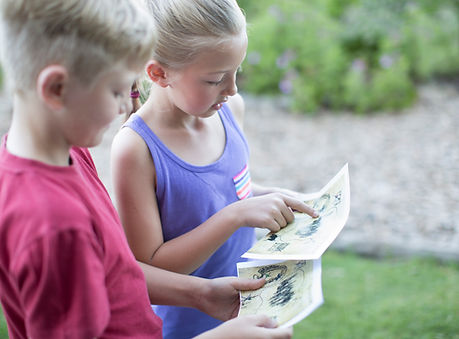NOW OPEN for Speech at Seward Park!
Speech Therapy for Birth to 7 years of age
- articulation and phonology
- pragmatics
- receptive and expressive language
- fluency
- play development and cognition
- social skills support
- bottle and breast feeding
- picky eating
- medical feeding challenges
-
Birth to 3 services as well as home/school visits available!
What does a Speech Therapist DO?
A lot actually...

Articulation and Phonology
Articulation refers to the coordinated movements of the lips, tongue, cheeks, teeth, jaw and lungs to produce meaningful sounds for speech. This is often described with your child "being hard to understand" in daily conversation, and when they get frustrated when someone else doesn't understand.
Phonology refers to the skills of hearing, recognizing and playing with spoken sounds. This can be as simple as understanding that the “buh” sound is different from “kuh” or a more complex skill like rhyming.

Receptive and Expressive Language
Receptive language refers to the ability to understand spoken and written language. This includes being able to understand and process information and directions (put on your coat, Stop/Wait, and other verbal information). While your child may "know" what the word is, processing it in daily conversation can be trickier!
Expressive language refers to the ability to use words, phrases and sentences to communicate our wants, needs and ideas to a listening partner. When a child is having difficulties with language they might not be using as many words as they should or when they do use words, their grammar or word order make their meaning difficult to understand.

Feeding and Swallowing
Feeding and swallowing skills refers to a child's coordination and regulation of oral-motor skills while processing liquid and solid foods. Children with feeding issues may have difficulty coordinating a suck-swallow-breathe pattern while bottle or breast feeding As they get older, children may struggle with managing the texture of certain foods or the strength and coordination of chewing solid foods.

Play
Play is the fundamental "occupational" skill of a child! This can include skills of learning how to independently play with others, by themselves, and engage in activities that match their interest and skill development. Play incorporates all sorts of neurological skills that if a bit out of sorts, it can make doing their "job" that much harder!

Neurodiversity and Affirming
Speech Therapists look at supporting a child's unique learning and language needs. This can include use of an AAC (Augmentative and Alternative Communication - device), style of language including Gestalt language processing, as well as recognizing your child's strengths and providing support to help them navigate the world!

Cognition and Play
Cognition and play often work together in development as play is a child’s actual “work.” Cognition in early development can refer to the planning, organization and problem solving during activities. Play is how children develop these cognitive skills so they can understand the relationship between objects, activities and the world around them. Play skills build over time and become more complex, which when paired with developing language is an amazing thing to watch kids develop!

Fluency and Stuttering
Fluency is the way that sounds, syllables, words and phrases are combined together during speech. When fluency is affected we often see changes in the speed or smoothness of speech production. A child may experience difficulty with how fast or slow they are talking. There may be breaks, disruptions or repeated sounds/ words which cause frustration in communication. While everyone has moments of disfluency, it may be time to see a speech pathologist if these disruptions are interfering with the child’s ability to effectively express their wants and needs or it is causing distress or physical discomfort when moments of disfluencies occur.
Stuttering and Cluttering are considered a fluency disorder.
Stuttering is when there are breaks in speech, like repeating sounds or getting stuck on words.
Cluttering involves speaking too fast or mixing words together, making it hard to understand.

Social Language and Pragmatics
Social language refers to the societal "norms" of communication. When we are
communicating with others, we learn skills about how to greet others, how to turn-take during conversations and include more or less information depending on the listener.
Pragmatics refers to the subset of language of knowing what to say, when to say it and how to say it. A child may want to engage with others but needs support with these skills when they have difficulty initiating a conversation with peers and consistently require an adult to help facilitate their train of thought and meaning behind their communication. A child may have differences initiating and engaging in play with others that benefit from support.
Does your child struggle with...
Each child is unique, but some struggles and diagnosis are more common than others. You are not alone! Many kids benefit from Speech support
ADHD
Autism
Down Syndrome
Stuttering
Expressive/Receptive language
Genetic Differences
Breast or Bottle Feeding
Daily Function
Emotional Regulation
